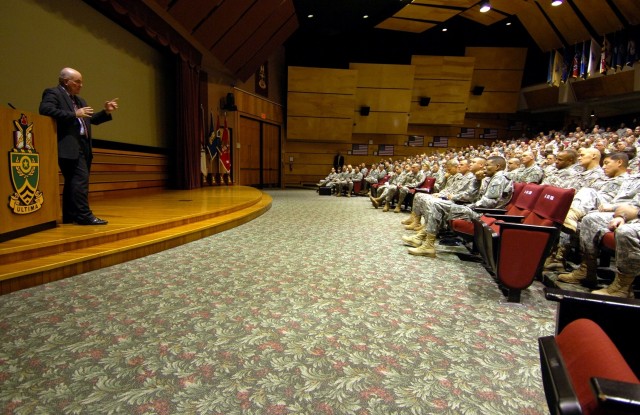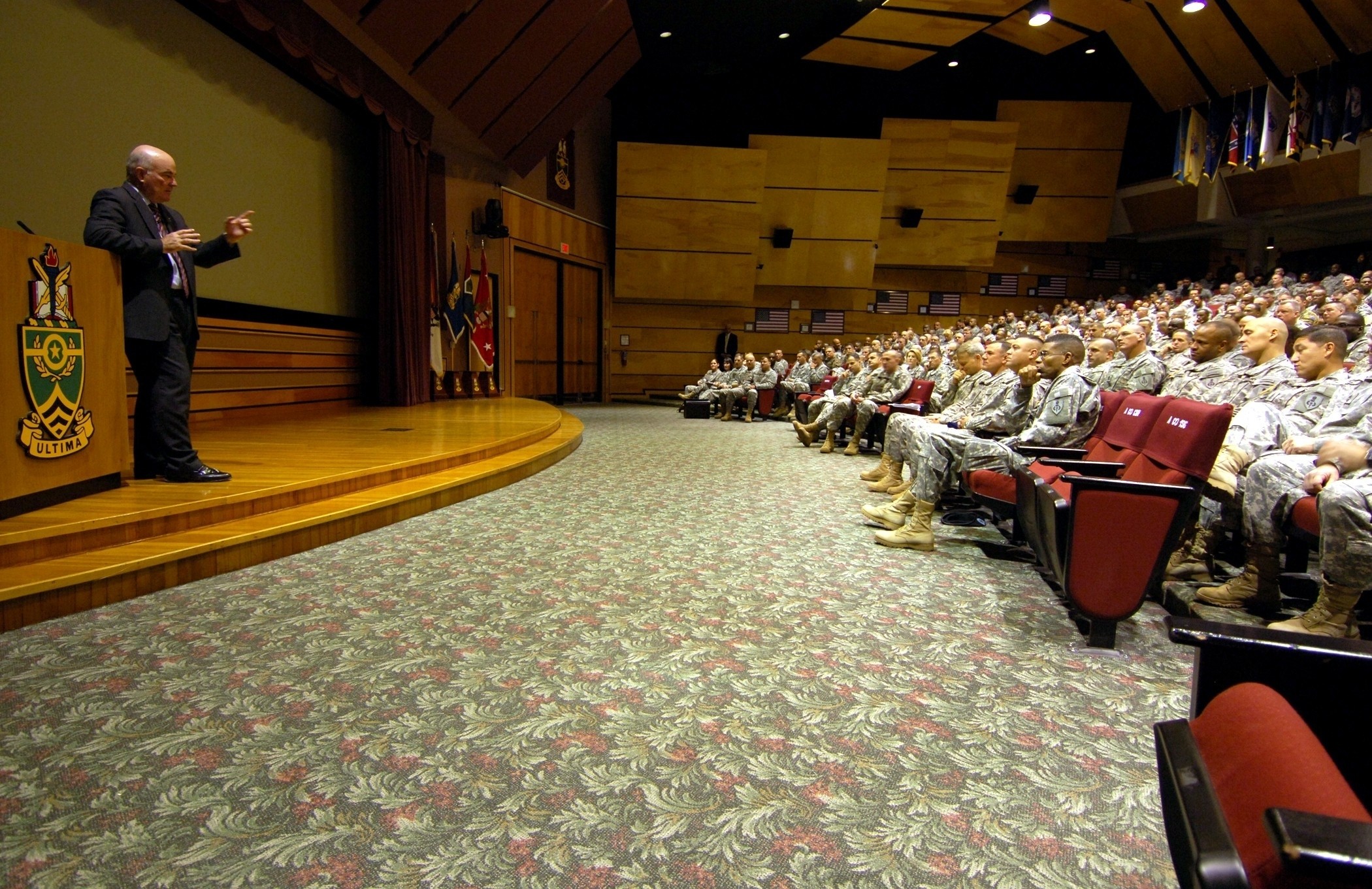The Secretary of the Army, Honorable Francis J. Harvey, gave a strategic overview of the Army Jan. 10 to senior noncommissioned officers attending Class 57 at the United States Army Sergeants Major Academy.
"My intention is to give you a greater understanding and insight into the overall direction the Army is taking," said Harvey.
Harvey stated upfront that the Army's noncommissioned officer corps is key to its success and is the envy of every army in the world.
But, he added, Army NCOs cannot rest on their laurels, as the Army must adapt to a changing world and continually improve to face the new challenges brought by the Global War on Terrorism.
Harvey acknowledged that more than 75 percent of the students in Sergeants Major Course Class 57 have served in key leadership positions in either Iraq or Afghanistan. "I'd like to personally thank you for your selfless service to our nation and, on behalf of our nation, thank you for the sacrifices you have made," he said.
He then showed students the Strategic Framework for the Army Plan, which addresses how the Army will continue to be relevant and ready in a complicated 21st century security environment.
"The 21st century security environment is characterized as an era of uncertainty, unpredictability, misinformation and misconceptions," Harvey said.
The Army plans to implement the new strategy through a series of 19 key initiatives, he said. These initiatives will include building a modular force that will focus on brigade combat teams, increasing the size of the Army and creating Army leaders of the 21st century by training and educating officers, civilians and noncommissioned officers.
He called NCOs "pentathletes" under the new initiatives, who he defined as multi-skilled leaders personifying the warrior ethos in all aspects, from war fighting to statesmanship to enterprise management. "It's a way of life," he said.
"This is the Army's largest transformation since World War II,' Harvey said.
While acknowledging there will be growing pains during the process, Harvey said the end result will be an Army that is prepared to meet any challenge in any environment.
Another key result of the changes should be improved quality of life for Soldiers, including improvement of housing, predictability of deployment and longer dwell times at home.
Harvey said they owe all this and more to the greatest generation of Soldiers in the nation's history. "This Army is the best Army in the world because of Soldiers - confident, capable and dedicated Soldiers."


Social Sharing